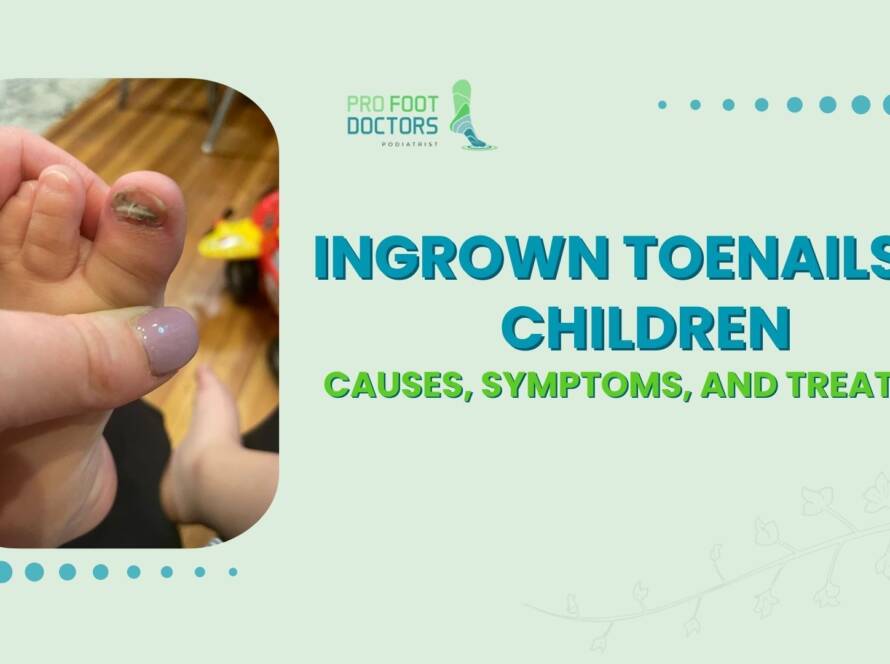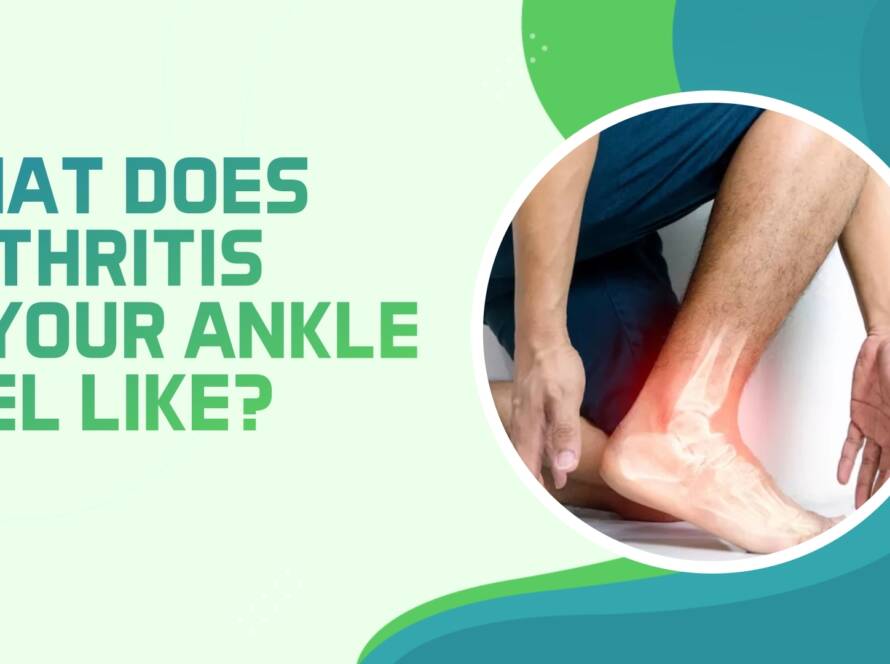When the tendon connecting your heel to the back of your leg becomes painful and swollen, it leads to Achilles tendonitis or tight Achilles tendon. The calf has two big muscles. These make the power required to push off with the foot or go up on the toes. The large Achilles tendon joins these muscles with the heel, thereby enabling you to push the foot down. The Achilles tendon helps in walking, jumping, and running.
Tendonitis is quite common in adults over the age of 40. This is more common in athletes, runners, or walkers. In middle-aged and older people, tendonitis generally happens from arthritis.
The majority of cases of Achilles tendonitis are treatable at home with simple care, of course, under the supervision of a podiatrist. Moreover, some self-care strategies are mandatory to prevent recurring episodes of this problem. It may be worth noting that more serious cases of this injury may result in tendon ruptures needing surgical intervention.
Achilles Tendon Tightness Symptoms
Some of the common symptoms of Achilles tendonitis are:
- Pain in the heel while running or walking along the tendon’s length
- Stiffness and pain in the region during the morning
- Pain in the Achilles tendon when moving or touching
- Warmth and swelling along the tendon or in the heel
- Difficulty while standing up on one toe.
What Can Cause Achilles Tendonitis?
Achilles tendonitis occurs due to overuse of the Achilles tendon, the band of tissue connecting the calf muscles (at the back of the lower leg) with the heel bone. Middle-aged individuals playing sports like basketball or tennis only on the weekends commonly suffer from this problem. Runners who suddenly increase their running duration or intensity are common victims of this injury.
With age, the Achilles tendon structure becomes weak, making it highly vulnerable to injury, especially in people who play only on the weekends or who suddenly intensify their running programs.
Risk Factors of Achilles Tendonitis:
- Age: Aging makes you more prone to Achilles tendon.
- Your sex: It mostly happens in men.
- Physical problems: If you have a natural flat arch in the foot, then it can place increased strain on the Achilles tendon. Moreover, tight calf muscles and obesity may increase strain on the tendon.
- Medical conditions: People suffering from high blood pressure or psoriasis face an increased risk of getting Achilles tendonitis.
- Training choices: If you run wearing worn-out shoes, then you are increasing your risk of Achilles tendonitis. Moreover, living in cold weather and running in hilly areas does place you at higher risk of Achilles tendon injury.
- Medications: Some of the common antibiotics that are associated with an increased risk of Achilles tendonitis are fluoroquinolones.
What are 2 signs of Achilles Tendonitis?
Apart from the pain in the Achilles tendon in the morning, many other symptoms can be experienced. Common signs of Achilles tendonitis are:
- Pain in your heel and along the tendon’s length during running or walking.
- Stiffness and pain in the calf region or the back of the leg while walking or running.
A few individuals having tendinopathy might feel pain when their tendon is touched. It might be painful to massage or move the tendon.
Achilles Tendonitis Self-Care
The Achilles tendon connects your heel bone to your calf muscles. They are helpful in pushing your heel from the ground to stand you up on your toes. These muscles and your Achilles tendon are used for walking, jumping, and running. Tendonitis in younger people is due to overuse.
Follow these tips for relieving symptoms and healing your injury:
Apply ice for 15-20 minutes over the Achilles tendon twice or thrice a day. Apply an ice pack wrapped in any cloth on the skin.
To decrease pain and inflammation, take medicine recommended by your podiatrist.
Before taking any pain medications, make sure to talk with your provider if you suffer from high blood pressure, heart ailment, stomach ulcers, or kidney disease. Moreover, ensure to take the recommended amount of medicine.
Achilles Tendonitis Recovery Time
Generally, it takes nearly 6-8 weeks for improvement. To avoid doubling the recovery time and facing frustration, patients must not do any early activity on a tendon that is healing. Aggressive conservative treatment is a must for the prevention of further injury to the tendon.
Achilles Tendonitis Treatment
Treatment of Achilles tendonitis is quite possible if we work towards it. Your recovery can be fast and long lasting if you consult a podiatry expert at the initial sign of stiffness or pain and also follow the treatment plan. Of course, you must schedule an appointment with the doctor right away.
It needs to be kept in mind that symptoms are unique for every individual. While some can feel stiffness and pain, others may have only one of these issues. So, irrespective of whether you feel stiffness and pain during the morning, there is no certainty that the injury is less or more severe.
Rather, the clear sign of the injury getting worse is an increase in stiffness, pain, or both from the day one to the next. That is, discomfort becoming worse is a clear signal to seek help. Consult an experienced podiatrist at Pro Foot Doctors for quick recovery.
Related Questions
1. Why are my Achilles tendons tight in the morning?
Injuries of the Achilles tendon might cast a shadow as the day starts, with people feeling increased discomfort in the morning. This pain is the result of the response of the tendon to an inactivity period during sleep. But the good news is that as you walk throughout the day, there is a breakdown of the fluid accumulation. So your stiffness and pain improve. But this does not mean that you should ignore tendonitis because doing so will make your pain a chronic issue.
2. Why is my Achilles tendon tight?
Achilles tendon tightness is not related to any specific injury. Basically, it results from repetitive stress suffered by your tendon. So, when you push your body too quickly or too much, it leads to Achilles tendonitis. Apart from that, a few other reasons could be:
- Tight calf muscles put extra strain on the Achilles tendon, especially the region where it joins the heel bone.
- Any sudden increase in the intensity or amount of exercise.
- Inflammation and pain in the Achilles tendon can also be caused by Haglund’s deformity, which occurs due to the enlargement of the bone at the back of the heel.


